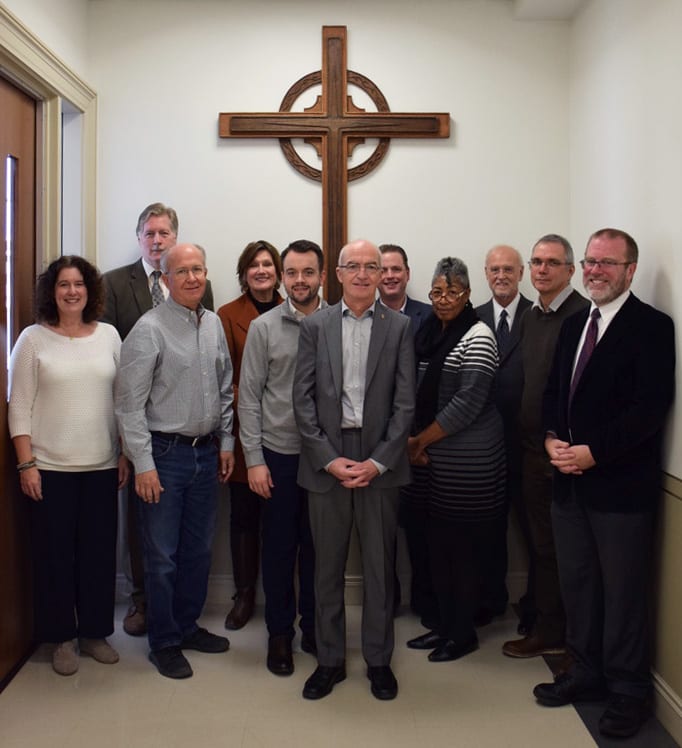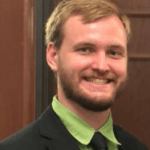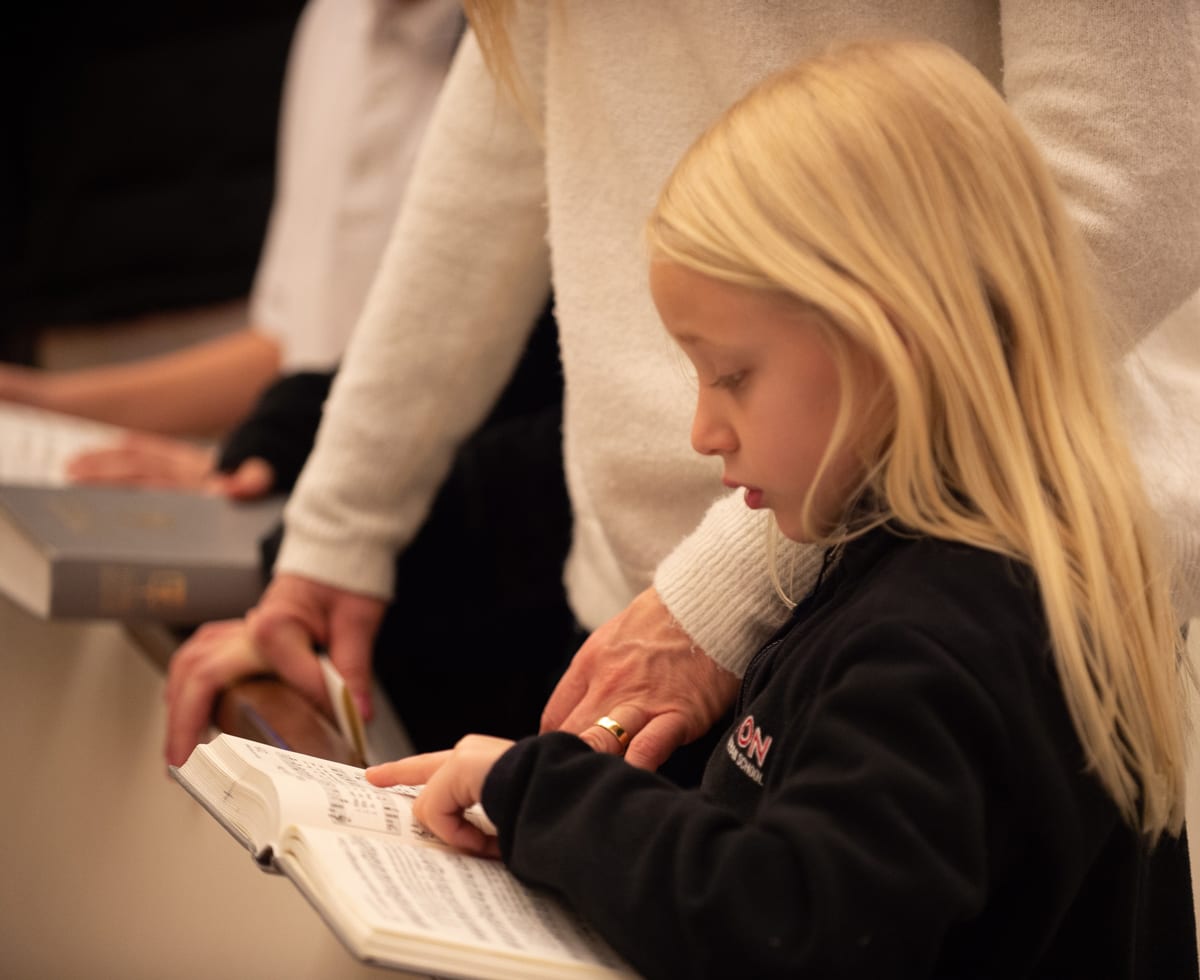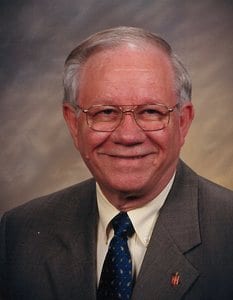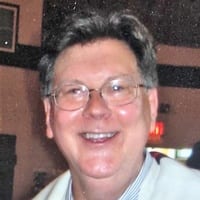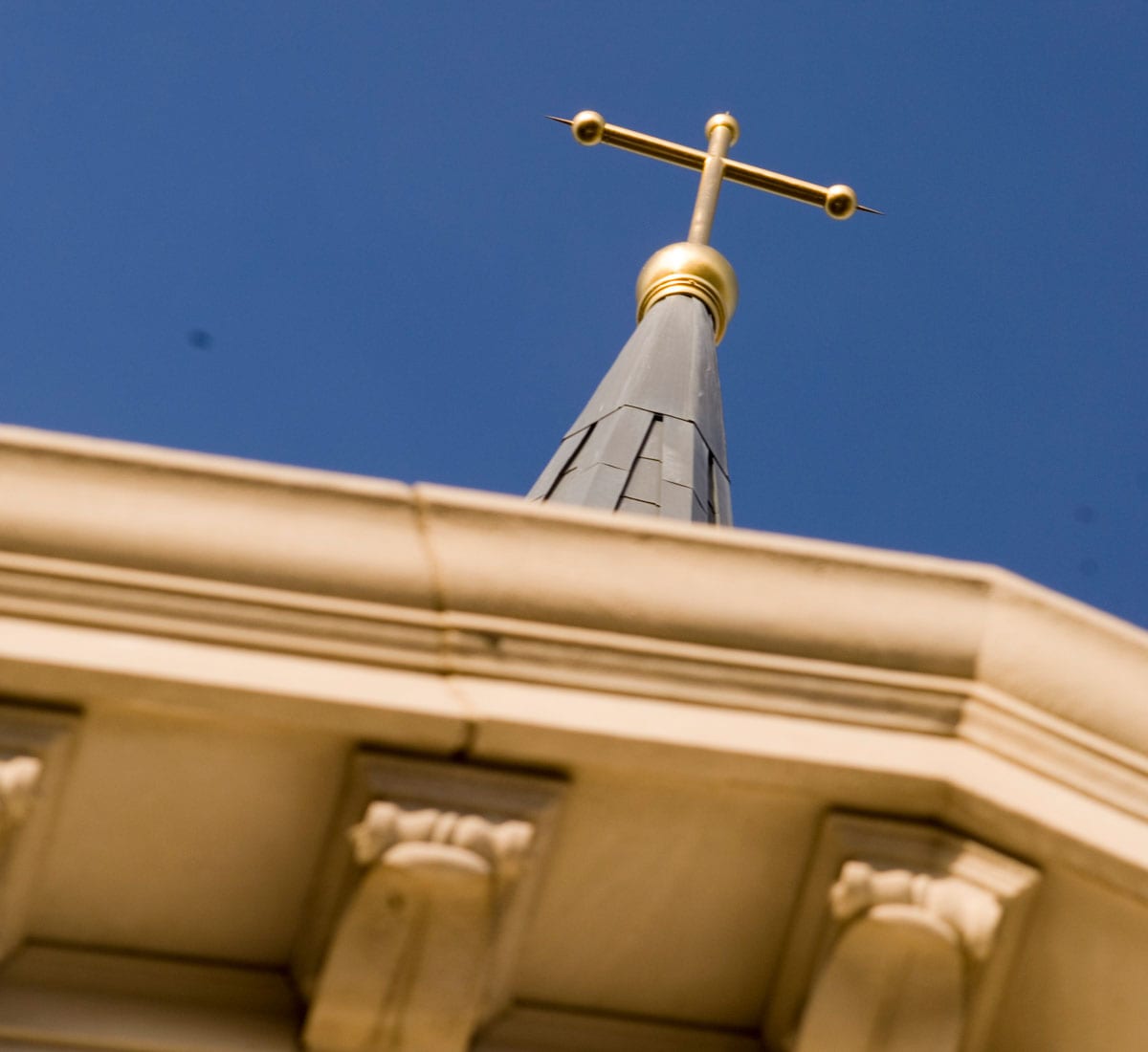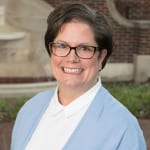The book of Acts calls on believers to witness “to the ends of the earth.” With a new digital platform, Perkins aims to go even further: bringing that witness to and from the ends of the earth.
With the Global Theological Education Virtual Visiting Professor project, Perkins is helping create a fully accessible and continually growing library of short classes coming from scholars world-wide and available across the globe.
“It’s creating resources from the entire world, to be available to the entire world for theological education, not only in seminaries but also in Sunday school classes and other groups,” said Robert Hunt, a faculty member and Director of Global Theological Education (GTE) at Perkins.
To make these resources available to teachers and students worldwide, including those in remote areas, the GTE program will use both the internet and custom-built intra-net devices that require no Internet access. This will not only strengthen theological education globally but will give scholars in the global south the opportunity to share their unique insights and wisdom.
Additionally, modules and materials developed through this program will be made available to the General Board of Higher Education and Ministry of the United Methodist Church’s Course of Study and Regional Hubs dedicated to Global Theological Education.

“We at GBHEM welcome Perkins’ bold new initiative to better serve the global education and ministry needs of the United Methodist Church,” said Rev. Kim Cape, General Secretary of the denomination’s leadership development agency. “With Perkins we are committed to providing access to quality theological education world-wide.”
The project aims to meet a need for theological education outside the U.S., particularly in Africa, where church membership is growing rapidly and the pipeline for educating pastors can’t keep pace, said Andrew Harper, a Perkins alum (M.T.S., ’16) and head of Global Partnerships at Cliff College—one of the project’s partner organizations.
“In Africa, education is very expensive, there’s a shortage of funding and a lack of expertise in particular areas, such as pastoral care and counseling,” he said. “The church in Africa is seeing a great need to equip their pastors and theology students, but the expertise has been largely centralized in the global north. We have an immense opportunity to provide a platform to share that knowledge.”
The project began with a conversation between Perkins and leaders of the Endowment Fund for Theological Education in the Central Conferences of the United Methodist Church, which includes Africa, the Philippines and Europe, as well as representatives of the denomination’s General Board of Higher Education and Ministry (GBHEM). That led to a commitment by Perkins to help develop resources to benefit theological schools in the Central Conferences.
“We would want to develop resources that come from outside the U.S., from scholars in Africa, the Philippines and Latin America, and make them available on a platform that will be available to everyone, and we have moved quickly in that direction,” Hunt said.
To date, the project has created a model for online learning and a pilot website featuring Ted Campbell’s existing online course in Early Methodism. (To see the pilot course, visit GTEPilot.com. Short videos on the history of Methodism in other countries are also posted there.) Currently, seminary leaders in Africa, the Philippines and Latin America have reviewed the pilot website and provided feedback on the approach.

As important, in 2019 the program will begin to record and produce courses led by scholars at United Methodist institutions in the Philippines, Africa and Latin America. Hunt traveled to the Philippines in July and December, and South Africa in November, and has confirmed plans for the first resource creation seminar in May of 2019. By partnering with the Philippines Association of Schools, Colleges, and Universities, the program will create as many as a dozen short courses in a week’s time. Similar resource creation seminars, structured to meet local needs and to take advantage of unique opportunities, will be held in Africa and Latin America later in the year.
The program is also partnering with the American Society of Missiology and the International Association of Mission Studies to produce short “master classes” with important missiological thinkers from around the globe. And it hopes to take advantage of upcoming meetings of women in theological leadership to integrate their perspectives into the available resources.
“Immediately, the plan is to have 15 to 25 short courses on the website and the intra-net devices by end of 2019,” Hunt said. “As we move forward, we will work with local institutions to develop appropriate methods of resource creation. Our seminars will train leaders in online pedagogical methods so that they can adapt available technology to continue to produce new courses from scholars in those countries.” The program will also partner with the Hunt Institute of Engineering and the Humanities at SMU to develop courses for pastors related to leadership in community development.
In developing the online platform, Hunt drew on expertise in online teaching from SMU’s Annette Simmons School of Education & Human Development. A typical course will feature multiple modules, each with a video lecture of 8-12 minutes in length, as well as assigned readings and accompanying materials (such as illustrations, charts, and data), discussion questions, and an online discussion forum. To adapt Campbell’s online course as a pilot, his hour-long lectures were divided into shorter “chunks” for easier viewing from a small device such as a mobile phone.
“Typical online courses based on hour-long video lectures are neither pedagogically effective nor technologically advisable,” Hunt said. “The lectures take too long to download and can rarely keep a student’s interest.”
Each course will have clear learning objectives and criteria for measuring how each student meets those objectives. “This is important so that, regardless of where the student is, the course can meet their accreditation requirements,” Hunt said.

One challenge of the project will be to ensure that teachers aren’t isolated from fellow scholars, and students don’t study in isolation – that they have access to other students and to professors for discussion and dialogue. So, in addition to internet enabled discussion groups, project leaders are working with SMU’s engineering and computer science faculty to identify the best technology to extend online discussion possibilities to remote areas.
“Broadband is sparse in Africa, but almost every person in Africa has a mobile phone,” Harper said. “We are working on finding the best ways to bring people together digitally.”
Ultimately, each Central Conference theological school will determine how the online resources are used – whether for distance learning, as part of a hybrid curriculum, or as material for classroom teaching, or as homework assignments. Because the courses are presented in short segments, the material will also be ideal for Sunday School classes and other informal learning settings.
“Initial funding for these efforts comes from the Perkins School of Theology Global Theological Education Fund, a grant from the Association of Boards in Theological Education’s In-Trust Center for Theological Schools, and the Woodworth Estate in Oklahoma,” said John A. Martin, Director of Development and External Affairs. “And we’re currently seeking funding to extend the project after 2019.”
Harper notes that sending an African student to the U.K. to obtain a theology degree at Cliff College costs about $75,000; for that cost, an online program could deliver 33 Master’s degrees to students in Africa.
“If we want to talk about good stewardship of Christian money, that’s just huge,” he said.
Ultimately, the project will give western theology students and scholars access to the perspectives of scholars in Africa and other developing nations. Harper cited examples of African church leaders who have done cutting-edge work in evangelism and reconciliation, developing that expertise through “unspeakable” challenges faced in those countries, but whose expertise has not yet been shared widely.
“I see this whole project as highly anti-colonial,” Harper said. “It is a decentralization of theological education, and it will be a disruptive force.”
“By gathering resources from around the globe for use around the globe we hope to create a truly global theological education for students around the world,” said Hunt. “An education for students anywhere, accessible both in the classroom and beyond.”
Participants in feature photo at top (from left): Rev. Shannon Conklin-Miller, Assistant General Secretary for Clergy Formation, General Board of Higher Education and Ministry, The United Methodist Church; Dean Craig C. Hill, Perkins School of Theology; Dr. Robert Hunt, Director, Global Theological Education Program, Perkins; Rev. Connie Nelson, Director of Public Affairs and Alumni/ae Relations, Perkins; Dr. Andrew Harper, head of Global Theological Education, Cliff College, UK; Bishop Patrick Streiff, resident bishop of Central and Southern Europe Area and chair of the Endowment Fund for Theological Education in the Central Conferences; Mark Greim, Business Manager, Perkins; Dr. Evelyn Parker, Associate Dean for Academic Affairs, Perkins; Dr. John Martin, Director of Development, Perkins; Dr. David Field, Academic Coordinator of Methodist E-Academy; and Dr. Andrew Keck, Executive Director of Strategic Initiatives, Perkins.
